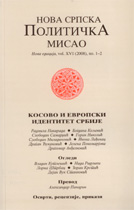| NSPM in English | |||
EU Starting to Replay Yugoslavian Scenario in the Caucasus |
 |
 |
 |
| уторак, 19. август 2008. | |
|
The decision made on Wednesday at the emergency meeting of the EU Foreign Ministers shows that Europe hopes to gain control over yet another strategic region — the Caucasus. Foreign ministers of the 27 EU countries agreed to send observers to Abkhazia and South Ossetia and to subsequently consider a broader peacekeeping presence. The EU high representative for the Common Foreign and Security Policy Javier Solana indicated that the mission would possibly include not only observers but also a police force. He did say that such a mission would require a resolution of the UN Security Council. French Foreign Minister Bernard Kouchner said resolutely "That's how Europe should be on the ground". The expressions of regrets about fatalities and permanently growing numbers of refugees notwithstanding, it appears that the EU statements and suggested steps addressing the conflicts in South Ossetia and Abkhazia add up to a scenario akin to that of gradually penetrating into crisis zones, which has been tested in the Balkans in the 1990ies and in the early 2000ies. «The pledge to set up an international mechanism rapidly» for peacekeeping in the two de facto republics is a thinly disguised intention to sideline Russia whose peacekeeping mission in them is based on a UN mandate and whose peacekeepers were the first to engage the Georgian forces which invaded South Ossetia. The EU has long been notorious for the tendency to move in after others had done the most difficult part of the work. In particular, this approach was practiced by the EU in Bosnia and Herzegovina after the UN and others achieved a settlement in the former Yugoslavian republic. It should be noted that until June 2003 Russian troops were a part of the stabilization force deployed in Bosnia under the UN flag. In December, 2004 the responsibility for the fulfillment of the 1995 Dayton deal was taken over by a 7,000-strong EU force which of course included no Russian soldiers. It seems that the same can be expected in South Ossetia and Abkhazia... Attention should be paid to the fact that the EU mentions the need for a UN Security Council sanction to change the format of peacekeeping in the Caucasus . As we know, the UN never sanctioned the same transformation in Kosovo, but nevertheless Brussels is actively taking over the authority of the UN mission and propping up the Albanian authorities in the region. Facing the objections raised by Russia and Serbia , Solana says that the new Kosovo realities must be taken into account. The situation in South Ossetia and Abkhazia has also changed radically as a result of the events of the past several days. Again, the EU is trying to benefit from the changes. In this case, however, we hear no references to the interests of the self-proclaimed states, but are instead presented with the demand to respect the independence, sovereignty, and territorial integrity recognized by the international law and the UN Security Council. In other words, we are invited to respect the same principles that the EU is entirely neglecting in Kosovo. Not surprisingly, so far the EU cannot be credited with any success in peacekeeping. The situation in Macedonia , another country to which a EU mission has been dispatched, is rapidly deteriorating. Brussels expressed a profound disappointment over the June 1 parliamentary elections in the country which were marked by an outbreak of Albanian extremism. Nor has the EU police mission done much in Bosnia and Herzegovina . Louis Amadu, the Foreign Minister of Portugal, which is one of the few EU countries which still have not bent to the pressure exerted by the Brussels bureaucracy to recognize the independence of Kosovo, says that Europe has made certain mistakes at the Balkans and that the experience must be used to avoid repeating them. The demise of Yugoslavia was initiated by pan-European organizations. The 1995 Dayton deal on Bosnia and Herzegovina imposed on Serbs by the EU resulted in a phantom state, says Dr. K. Nikiforov, Director of the Slavic Studies Institute of the Russian Academy of Science. In 1992-1998 he was a member of the group of speech-writers working for Russian President B. Eltsin and took part in preparing the corresponding documents as a specialist in the history of Yugoslavia . «The exodus of 150,000 Serbs from Sarajevo which began shortly was an ethnic cleansing triggered by the Dayton deal as it allocated the entire Serbian part of the city to Muslims. Sarajevo Serbs even excavated coffins at cemeteries and carried them to their new residence areas», says Nikiforov. It was the EU and Solana in particular who convinced the complaisant Belgrade and Podgorica leaders to consent to the partition of Yugoslavia into Serbia and Montenegro in 2003. Serbs were the losing side in the development. The adviser of the Serbian Embassy in Russia Elica Kurjac said to me bitterly about this peacekeeping exercise by Solana: „What on earth was it – Serbia and Montenegro ? It was a community rather than a country. It is due to the EU policy that Serbia still has not got stabilized as a country“. What are the objectives set by the EU as it plans to send not only observers, but also a police force and – who knows – in the future possibly soldiers to the Caucasus, a region where neither of the countries is even regarded as a candidtae for the EU integration? Taking into account Solana's role in organizing NATO strikes on Yugoslavia in 1999 (when he was NATO Secretary-General), the final elemination of the country in 2003, and the push for Kosovo independence afterwards, the essence of his mission should not be hard to predict. The plan is to impose various forms of Western control over the region strategically important from the standpoint of the Caspian oil and gas transit. Considering the current EU dependence on Russia for energy, the EU advent to the Transcaucasia is going to be a prologue to its becoming a key energy maket player and to rivalry with Russia . It should be remembered that 21 of the 26 NATO countries are also members of the EU. The functions of the two organizations overlap, and their objectives are largely common. Claiming the right to monitor compliance with the ceasefire agreements, veteran of the NATO campaign against Yugoslavia Javier Solana and the Brussels company openly pursue anti-Russian objectives. Behind them stand NATO Generals and George W. Bush, the renowned inspirator of „the new world order“. As for the US , it will never agree to limit its role in the Caucasus to mere monitoring... |
Од истог аутора
Остали чланци у рубрици
- Playing With Fire in Ukraine
- Kosovo as a res extra commercium and the alchemy of colonization
- The Balkans XX years after NATO aggression: the case of the Republic of Srpska – past, present and future
- Из архиве - Remarks Before the Foreign Affairs Committee of the European Parliament
- Dysfunction in the Balkans - Can the Post-Yugoslav Settlement Survive?
- Serbia’s latest would-be savior is a modernizer, a strongman - or both
- Why the Ukraine Crisis Is the West’s Fault
- The Ghosts of World War I Circle over Ukraine
- Nato's action plan in Ukraine is right out of Dr Strangelove
- Why Yanukovych Said No to Europe

.jpg)





















